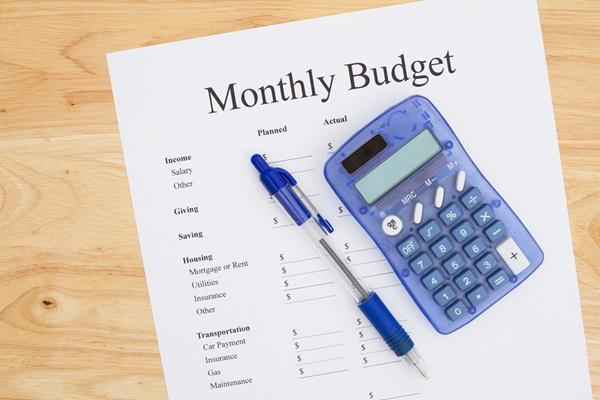Personal Budgeting After Divorce
Tips to Help You Get a Handle on Your Finances
By Tracy Achen
After divorce, a woman’s standard of living generally goes down because she has to support a household on only one income instead of two. When you include all the additional expenses that go hand-in-hand with divorce, such as retainer and legal fees, full-time child care, and replacing belongings that were split up in your divorce, it can feel like a financial black hole.

This is where budgeting can make all the difference. As you work your way to independence, drawing up a budget will give you a good over-view of your financial situation. Yes, it can be extremely depressing to see everything in black and white, but it will enable you to make the changes necessary to get by.
So how do you get started developing a personal budget? You can use either software or the pencil and paper method. Personally, I like using computer software because it lets me manipulate my information so I can see at a glance where I'm spending the majority of my money. If you don't already have budgeting software, Mint is an easy to use system that doesn't cost anything.
You can also use plain old paper and pencil if that suits your personal budgeting style. Below you will find a general budget outline to help you get started. It should also give you a clear idea of what your expenses and income are.
EXPENSES
Rent /Mort.:_______
Insurance: ________
Prop. Taxes: ______
Gas: ______________
Electric: __________
Phone: ___________
Cable:____________
Water: ___________
Trash: ___________
Sewer: ___________
Internet:__________
Cell Phone:________
Groceries:_________
Eating Out:________
Pocket Cash: ______
Daycare:___________
Camps: ____________
Kids Lunches: _____
Team Fees:________
School Photos:____
Allowances:_______
Office Goods: _____
Bank Fees: ________
Credit Cards: ______
Bank Loans: _______
Auto Loans: _______
Auto Gas: _________
Auto Ins: __________
Car Care: _________
Tolls:______________
Dr. Bills: _________
Dental: __________
Eye Care:________
Repairs: _________
Gifts/Cards:______
Cleaning:________
Clothing: ________
Barber:__________
Nails:____________
Pet Care: ________
Magazines:_______
Newspaper:______
Health Ins:_______
Life Ins: _________
Total Expenses: _________________
INCOME
Wages and Salary: __________
Business Income: ___________
Rental Income: ______________
Pension:_____________________
Child Support: _______________
Alimony: _____________________
Investments/Interest: ________
Total Income___________________
There will be other sources of money such as tax refunds, gifts, bonuses, and inheritances, but you should not rely on them in your personal budgeting. It is best to use these to pay down debts. To see where you stand on your personal budgeting, subtract your expenses from your income. While this may be a negative number, there are ways to narrow the gap.
Controlling Your Expenses
While you may not be able to increase your income, you can lower how much money goes out so that you actually have enough to live on until the next paycheck comes in. Temporarily foregoing some of the extra expenses can really add up over a year’s time. For example, consider doing without the following for now:
- Premium movie channels
- Streaming services you don't use often
- Home phone service if you already have a cell phone
- Eating out once a week
- Magazine subscriptions
- Newspaper subscription
- Having your nails done at a salon
- Take-out pizza once a week
- Non-member ATM Fees twice a week
- Starbucks twice a week
In a years' time, you will have saved close to $3000 with very little sacrifice. As you can see, little changes can make a big difference. If you look at your financial situation as a challenge instead of being overwhelmed by it, you will be a lot better off in the long run. You can take control of your destiny.
When You Can't Overcome Your Budget Shortfalls
Many women face dire financial circumstances after divorce. For your sake (and the sake of your children), don’t be too proud to ask for help. Money to pay the lawyers, buy food, or put gas in the car is necessary. Someone to watch the kids while you work, go to appointments, or just unwind is necessary. Your family would probably be willing to help you out if you explain the situation.
If your situation is extremely tight, consider applying for federal assistance programs such as SNAP, Medicaid, HUD, TANF, and federal daycare assistance. It may be hard to swallow your pride, but these programs can help you survive until you are financially stable.
For more tips on controlling your expenses and personal budgeting after divorce, check out the following articles:

